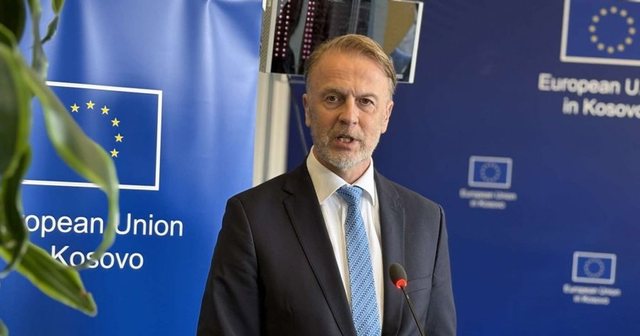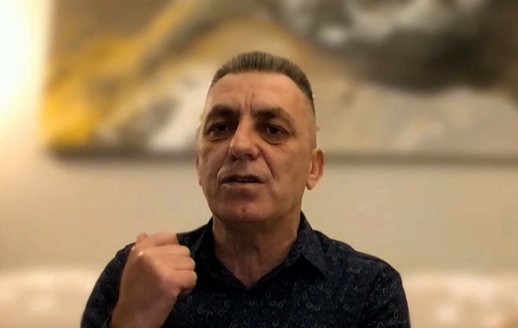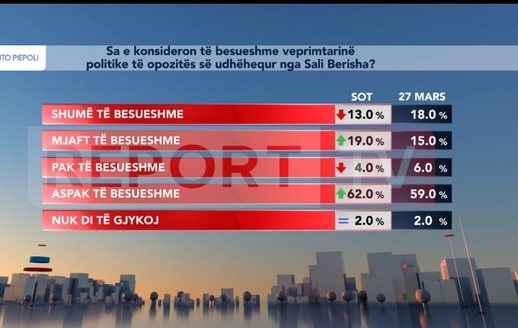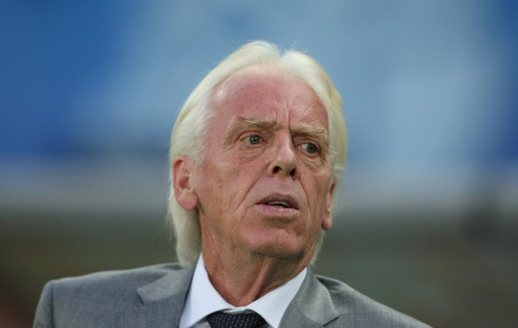
Orav: Kosovo-Serbia dialogue is not dead


At a time when many political experts believe that the dialogue between Kosovo and Serbia has lost its direction and is "clinically dead", the head of the EU Office in Kosovo, Aivo Orav, has a different position.
Ambassador Orav emphasized that the dialogue cannot be considered dead, despite the challenges and setbacks it has encountered over the years.
"In a way, it is neither clinically nor otherwise dead. This is an important step, or rather, a process between Serbia and Kosovo, which began in 2013 under the facilitation of the European Union, then under Ms. Ashton.
He has continued, yes, with some more positive moments, perhaps even with negative moments, but to say that he is clinically dead, by no means.
"The dialogue is very lively, and among the best examples of this is Peter Sorensen, who was here, and who will come again, and under the leadership of the High Representative (Kaja Kallas vj), who I hope will also come, I believe soon," said Orav.
He expressed high expectations for the impact that Sorensen's engagement will have on this dialogue and on Kosovo's international relations.
“I believe that usually what happens is that when new people take over the job, they certainly have new energy and enthusiasm, and I believe that will be the case with Mr. Peter Sorensen.
He was here a few days ago and also in Belgrade, where he is asking questions and then I really hope he will return with some kind of proposal.
Meanwhile, the dialogue, or rather the normalization process, is extremely important for both sides, Kosovo and Serbia, because I cannot imagine how Kosovo or Serbia could enter the European Union without the normalization of their relations," Orav added.
The European Union's financial assistance to Kosovo is closely linked to the dialogue process and the implementation of the agreements that the parties have reached, however Orav said that dialogue is a condition for the integration of both countries into the EU.
"The European Union is the goal for both Serbia and Kosovo. Dialogue is a condition, or a precondition, while financial assistance, or our money, is simply a tool to help, to help carry out reforms and to help the parties prepare for membership in the European Union," Ambassador Orav underlined.
In this context, he mentioned the European Union's Growth Plan, a program that has a significant fund to support the Western Balkan countries in implementing reforms and helping them move towards integration into the European Union.
According to Orav, although several countries in the region have already benefited from this plan, Kosovo has not yet received the financial assistance due to the lack of ratification by the Kosovo Assembly.
"Kosovo has not yet benefited. There is no other problem except that the Assembly has not been constituted. Whenever it is constituted, the Assembly must ratify the loan agreement.
"This is the reason why the money has not yet come from this Growth Plan," said Orav.
Regarding the measures against Kosovo, he mentioned Peter Sorensen, who was here, as well as the fact that in all his meetings, for three days in a row, he has heard from Kosovo counterparts, whether they are in government or opposition, or business and NGO leaders, regarding the situation with the measures, or even expectations that the European Union will lift those measures as soon as possible.
He said that the issue of missing persons is one of the priorities in the dialogue and considered the agreement between the chief negotiators of Serbia and Kosovo, last December, to form a joint commission for missing persons to be extremely important.
"Now, we need to take this work forward. Here in Kosovo, our colleagues from EULEX are working very closely with their counterparts at the Kosovo Institute of Forensic Medicine, while our EU Office here is trying as much as possible so that the voices of those families who have missing persons, their relatives, are heard clearly, and I want us to do everything possible so that this Institute has all the tools to do this work."
"It has been a huge problem for more than 1,600 families who have missing relatives, who have the right to know the truth, what happened, why, and how to move forward in this direction. So, this is one of the positive examples of what can be achieved with dialogue," Orav stated in the interview on RTK2.
He expressed hope that there will be no delays in the formation of the new Kosovo government after the certification of the February 9 elections.
"For us, it is important that this government is stable, that it is a good partner for us, that it fulfills its promises, and that it gets the job done, because it is the only way to move forward towards the European Union," said the head of the EU Office.
Speaking about the closure of parallel institutions operating under the system of the Republic of Serbia and whether this issue can be discussed in dialogue, Orav said that Serbian-led institutions in Kosovo are clearly an issue for dialogue.
"We have emphasized this many, many times, in our conversations with local politicians, but we have also said it publicly several times.
We certainly know how much this issue affects the people in the area in question. In the meantime, there are many agreements, many demands, that both governments have agreed to, so both sides must implement what they have agreed to.
"Here, as far as the Serbian side is concerned, I would like to emphasize that Serbia has promised not to hinder Kosovo's entry into international organizations, and here I am first talking about the Council of Europe," said Orav.
-
Jailed former Pakistani PM Khan nominated for Nobel Peace Prize
March 29, 09:54

Whoever interferes in the elections, there is no Rama or Berisha to protect them!
ideas
top
Alfa recipes
TRENDING 
services
- POLICE129
- STREET POLICE126
- AMBULANCE112
- FIREFIGHTER128



























